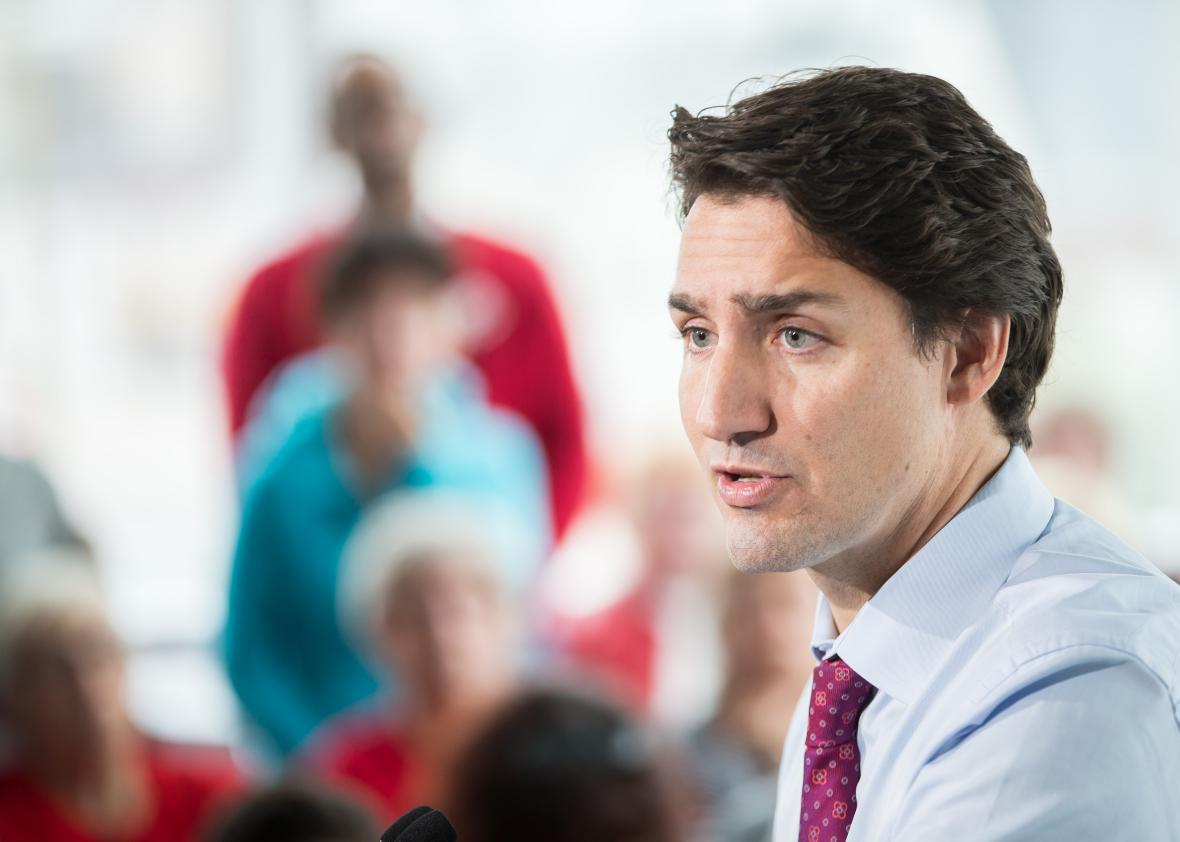Canada’s election Monday night turned out not to be the nail-biter everyone had expected. Justin Trudeau’s Liberal Party ultimately won handily with 40 percent of the popular vote, taking 184 of 338 seats in parliament to form a majority government. Canadians have now elected a very different leader from outgoing Prime Minister Stephen Harper in both substance and style, but what can the rest of the world expect from Canada’s new PM?
The main source of U.S.-Canada tension in the later Harper years has been the proposed Keystone XL pipeline, which Barack Obama vetoed in February. Trudeau has described his support for the pipeline as “steadfast,” but it’s clearly not the make-or-break issue for him that it was for Harper. If Republicans take back the White House in 2016, he’d probably be open to talking about it. But if the Democrats win, we may not hear much more about Keystone.
More significantly, Trudeau opposes the “Northern Gateway” project that has been building pipelines through British Columbia to load Alberta oil onto tankers bound for Asia. He’s also vowed to end subsidies for the fossil fuel industry and invest in green energy. So, it will be a very different Canadian government that shows up at climate talks in Paris in December, one that will be much closer to the Obama administration’s priorities.
Other changes might be more significant, though it could take a while to notice them. The Liberals opposed Canadian airstrikes against ISIS, which Harper’s government expanded into Syria in March. But Canada has conducted only a handful of airstrikes against ISIS in Syria, and while they have flown more than 200 in Iraq, it’s a small number compared with the thousands of missions flown by the United States, or for that matter Russia. Even if Trudeau ends Canada’s contribution to the air war, he may end up increasing his country’s involvement in Iraq if he follows through on a pledge to send more Canadian personnel to train Iraqi forces.
In the broader Middle East, Trudea has promised, in the wake of the recent nuclear agreement, to restore diplomatic relations with Iran, which Harper suspended in 2012. Harper was also known as one of the most enthusiastically pro-Israel world leaders. While Trudeau isn’t expected to be quite as buddy-buddy with Israel’s Benjamin Netanyahu, overall policies shouldn’t change that much.
Trudeau has also said he would withdraw the country’s plans to buy Lockheed’s troubled F-35 fighter jet. Instead, the government will plan to buy more affordable aircraft to replace Canada’s aging fighter fleet and buy more icebreakers and combat ships amid growing tension with Russia in the Arctic.
The biggest shift may come on refugee policy. Trudeau has pledged to take in 25,000 asylum seekers by Jan. 1 and has said he’d consider airlifting Syria refugees directly from the Middle East. Harper’s government had been criticized for the slow pace of refugee resettlement, particularly after the death of toddler Aylan Kurdi, whose family was trying to reach Canada, captivated the world’s attention last month. As of August, Canada had only taken in a little more than 1,074 of the 10,000 Syrians it had promised to resettle over three years. Harper had also tried, unsuccessfully as it turned out, to make Muslim face veils a major issue in the campaign.
Trudeau seemed to be referring to the issue in his victory speech Monday night, saying, “We know in our bones that Canada was built by people from all corners of the world, who worship every faith, who belong to every culture, who speak every language.” While it was undoubtedly the economy more than any other factor that sealed Harper’s downfall, it’s notable, given the recent populist backlash to the refugee crisis in Europe, that in the first major election where Syrian refugees were an issue, the side advocating a more open and generous approach prevailed.
